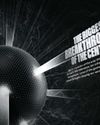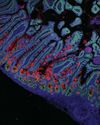
Are you, or is someone you know, ageing? Of course you are: though a handful of wellness influencers claim otherwise, the processes of biological ageing are ticking along within us all. But there’s good news – scientists now understand enough about those processes that we may one day be able to slow them down, or even reverse them. And that day might arrive sooner than you think.
While you should take the claims of social media biohackers with a very large pinch of salt, longevity science is beginning to uncover the mechanisms that make us grow old. It goes far beyond vanity – such scientists aren’t just trying to create new anti-ageing skin creams to smooth fine lines and wrinkles, but real anti-ageing medicines that will slow the advance of those biological processes happening inside all of us.
The biology of ageing essentially causes diseases like cancer, cardiovascular disease and dementia. For example, while having high blood pressure roughly doubles your chance of a heart attack, being aged 80 rather than 40 multiplies that risk by 10. That means understanding the biology behind these enormous risk increases could lead to the greatest revolution in medicine since the discovery of antibiotics. It could transform not just the treatment, but the prevention of disease in the first place.
The prize, if we can identify and treat these underlying causes of ageing, is enormous. If we could make people in middle age a bit biologically younger with drugs that address the ageing process, we could improve everything from heart health to wrinkles, and delay the onset of cancer, dementia and frailty, all at the same time.
Scientists have identified several so-called ‘hallmarks’ of the ageing process – underlying biological and biochemical processes that are common to multiple, different diseases and dysfunctions associated with old age. By tackling these hallmarks, we could potentially prevent many of these problems simultaneously.
この記事は BBC Science Focus の September 2024 版に掲載されています。
7 日間の Magzter GOLD 無料トライアルを開始して、何千もの厳選されたプレミアム ストーリー、9,000 以上の雑誌や新聞にアクセスしてください。
すでに購読者です ? サインイン
この記事は BBC Science Focus の September 2024 版に掲載されています。
7 日間の Magzter GOLD 無料トライアルを開始して、何千もの厳選されたプレミアム ストーリー、9,000 以上の雑誌や新聞にアクセスしてください。
すでに購読者です? サインイン

THE WORST IDEAS OF THE 21ST CENTURY
NOT ALL IDEAS CAN BE HITS. ALONGSIDE GROUND-BREAKING INNOVATIONS, 21ST-CENTURY SCIENTISTS HAVE HELMED THEIR SHARE OF WILD TECH FLOPS, DUBIOUS THEORIES AND OVERHYPED BREAKTHROUGHS. HERE ARE THE BIGGEST TO FORGET

10 IDEAS THAT WILL SHAPE YOUR NEXT 25 YEARS
Predicting the future is considered a fool's game. But it's one many of us like to play.

THE BIGGEST BREAKTHROUGHS OF THE CENTURY
We're a quarter of the way into the new century. To mark this milestone, we asked the UK's top minds to highlight some of the game-changing scientific breakthroughs shaping our world since the year 2000

DO THE SCIENCE COGNITIVE SHUFFLE
Trouble sleeping? A lot on your mind? Use this trick and sedate your synapses

WHAT DETERMINES HOW MANY ABS I CAN GET?
Assuming you're a human being, you have exactly the same number of abs as everybody else: two.

HOW CAN I IDENTIFY MY PSYCHOLOGICAL BLIND SPOT?
In the 1950s two American psychologists, Joseph Luft and Harrington Ingham, proposed a way of thinking about psychological blind spots - things you don't know about yourself - that they called the 'Johari Window' (the term is a combination of their first names).

How can I change my personality?
Want to become more confident, extroverted or assertive? Science shows that with a few simple changes, you can unlock your best self

Could your cosmetics be harming your health?
Cosmetic companies are phasing out microplastics and so-called 'forever chemicals' to help protect consumers.

extraterrestrial US Congress is talking about activity again. Is the truth really out there?
Despite several testimonies, the question remains frustratingly unanswered

Map of 100 million human body cells revealed
Over three dozen new studies mark significant milestone towards complete Human Cell Atlas